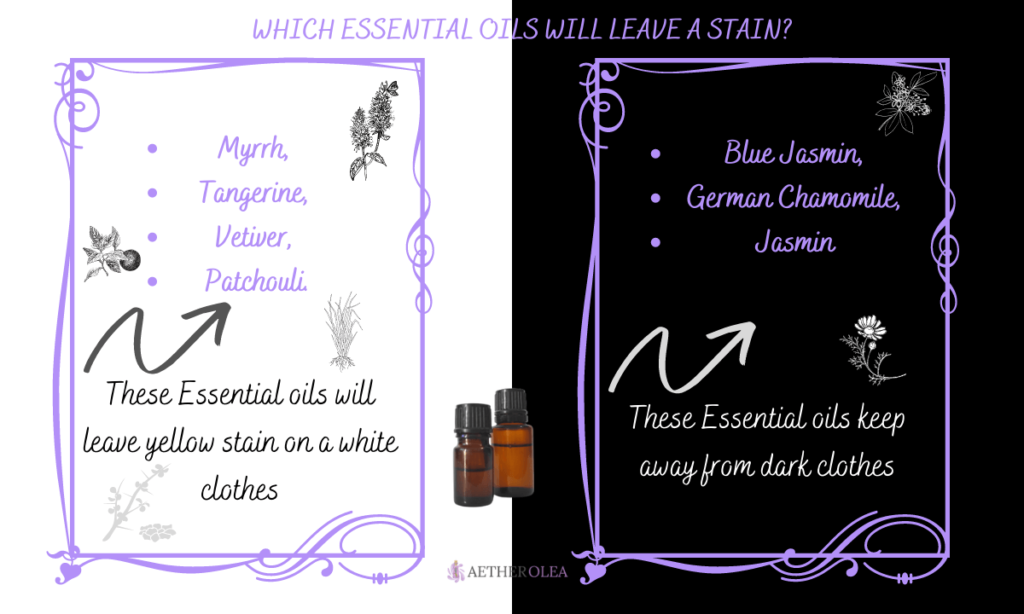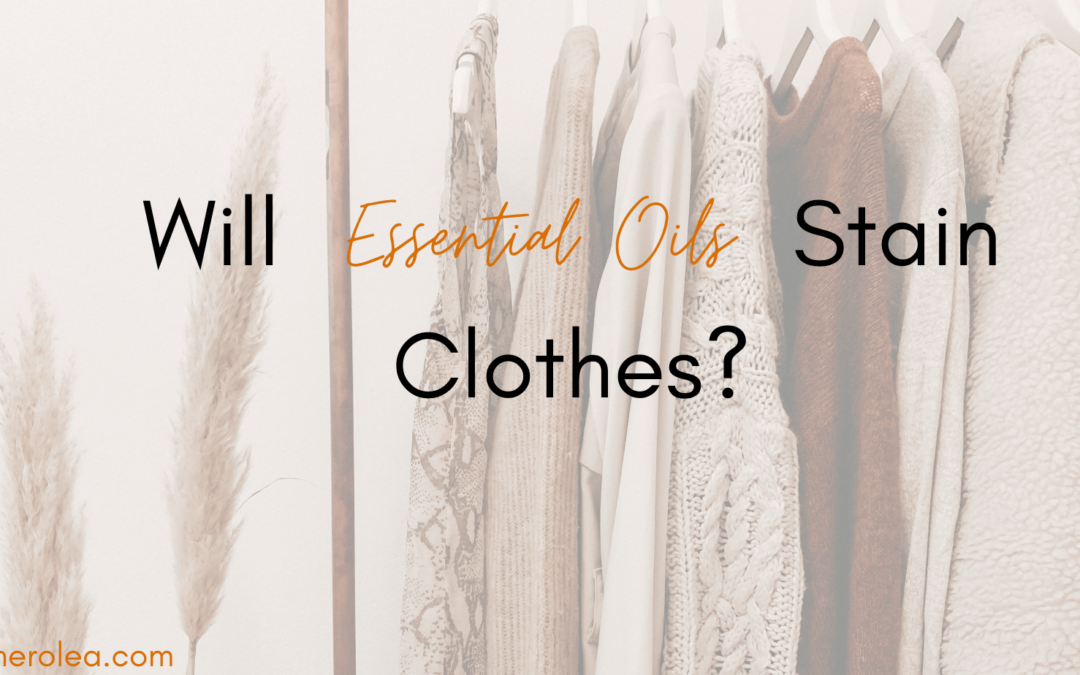We discovered that some people struggle to control their fingers when lifting a glass, which often results in spilled liquid. Whether it’s water, juice, or beer, it’s never comfortable to have to grab a towel and start cleaning up the mess.
To avoid such situations, some people choose to wear protective clothing or take extra care when handling cooking oil, for instance. As we all know, cooking oil can leave an unsightly, non-washable stain, which is why we take measures to protect ourselves.
Given that essential oils are also referred to as oils, it’s only natural to wonder whether they can stain your clothes. Our analysis revealed that while some essential oils can stain, not all of them will leave a permanent mark.
Most essential oils will evaporate over time, although you’ll still be able to see a stain if you spill the oil on your shirt, for example. When we tried inserting oil into a diffuser and the bottle slipped, it caused a temporary stain on our clothes that disappeared later on. However, this isn’t the case with all essential oils.
What are essential oils made of?
All essential oils are 100% natural products, they are made by pressing or steaming various plants found in nature. The extracts obtained from these plants are no different than the standard cooking oil we use daily in the kitchen. The only difference is that essential oils have more benefits for other uses.
According to the science behind them, essential oils are liquids made from different substances that are very similar to each other. These substances include lipophilic metabolites, mono and sesquiterpenes, and phenols. Some of them may also contain alkaloids, coumarins, and anthraquinones.
The extracts are always in liquid form and are highly volatile, even at normal room temperatures. This is why it’s essential to keep them closed tightly at all times. If you leave them open for a couple of days, the oil’s properties will disappear, and you’ll be left with nothing more than a useless liquid.
Which essential oils will leave a stain?
As we said, some essential oils will leave a stain if they are spilled, but not all of them. Some of those that will leave stains are Blue Jasmin, German Chamomile, and Jasmin. Others are Myrrh, Tangerine, Vetiver, and Patchouli. The first ones will leave a stain easily visible on dark garments, while the second ones should be kept away from white clothes, as they leave a yellowish color which will hardly disappear.
When it comes to the oils that are not leaving stains, which is basically every other oil, you need to know that they will not leave a stain only if they are 100% pure. If they are industrially diluted with additional substances that might be leaving a stain, then the oil is not responsible.

Always check the label when you’re getting your essential oil. See if it is 100% pure, and if it’s not, make sure that you see what kinds of substances are included inside. If some of these substances leave stains, don’t get the oil, and go for another solution.
If the oil is pure, it may leave a stain right after it is spilled, just like water will. But after some time, it will entirely evaporate, and nothing will be left behind. If the oil is not pure, a stain may appear, and you’ll need to struggle more to take it off.
How to remove essential oil stains?
Attempting to solve the problem with water alone is futile. Therefore, a stronger solution is required, and the best option is common dishwashing liquid.
To remove the stain caused by essential oils, all you need to do is apply some dishwashing solution to the affected area and rub it in with a damp towel. This allows the solution to penetrate the stain, mix with the essential oil and remove it effectively. Afterward, rinse the area with water, and you’ll notice the stain has disappeared.
Using lemon essential oils, you can remove other types of stains
In our analysis, we found that you can use essential oils to remove different types of stains. For this method, you’ll need lemon essential oil and laundry soap.
To start, you’ll want to follow the same procedure as described earlier. Mix the lemon essential oil and laundry soap and apply it over the stain. Rub the mixture into the stain for some time, and then let it sit for about 30 minutes. Afterward, rinse it with water, and you’ll notice that the stain is gone, leaving your clothes looking like new again.
How to avoid getting stains?
When we tried working with essential oils, we found that the best way to protect yourself is by wearing an apron. Additionally, paying extra attention to what you’re doing can be helpful. When working with oils around a heated stove, we are always extra cautious because we know the potential consequences.
The same applies to essential oils, with the only difference being that we can’t cause a mess by transferring them into a diffuser, for example. Moreover, it’s essential to work with them over a surface that is easy to wipe afterward, such as glass or a wood surface with an appropriate finish that is easy to clean.
Conclusion
We have covered everything you need to know about the relationship between essential oils and stains. You now understand which essential oils may leave a stain and which ones won’t. In case of a stain, you also know how to remove it effectively. Additionally, we have shown you how to use essential oils to remove other types of stains.
When shopping for essential oils, it’s essential to make sure that the diluted oils’ ingredients won’t leave a stain or go for 100% pure extracts. It’s crucial to handle everything with care and understand the potential risks involved. The bottom line is to be cautious when working with essential oils, and none of this will matter to you. However, in case of a stain, you now know what to do.


Recent Comments